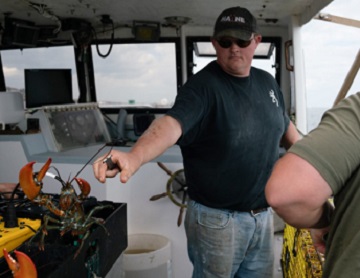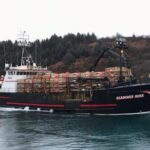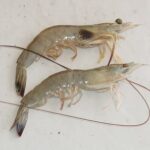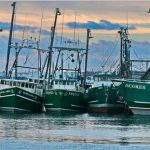Tag Archives: Patrice McCarron

Maine: Lobstermen could soon face another new gear regulation
Patrick Keliher, Commissioner of the state’s Department of Marine Resources, says recent research shows that the number of juvenile lobster floating in the water column or settling to the bottom is declining for a third year in a row. Now Keliher says that lobstermen should also consider another new rule to create a “trigger” mechanism for reducing the catch of juvenile lobster when their abundance falls below a certain level. Patrice McCarron, executive director of the Maine Lobstermen’s Association, on Tuesday told members of the Atlantic States Marine Fisheries Commission that fishermen will be “in shock” when they learn about the potential new rule. >click to read< 07:01
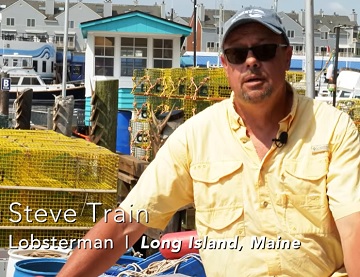
Video: Road to Disaster – Voices of Maine Lobstermen
In the first installment of this series, we get a bird’s-eye view of the current status of Maine’s lobster fishery, which is under assault on two fronts. In this episode, we only hear from lobstermen and their advocates. (If you want to hear more of the opposing views of wind lobbyists, just read any given corporate media outlet’s coverage of this subject.) Upcoming episodes will bring in additional perspectives…there are a total of 20 different interviews that I conducted in 2021, so you will not want to miss these. Video by Jason Joyce >click to watch< 17:07

North Atlantic Right Whale: Extinction Is Looming. Everyone’s Fighting.
This May, new rules created for the lobster industry by the National Marine Fisheries Service will become official policy for boats operating in right whale territory. The agency estimates that lobster and Jonah crab traps are responsible for 95 percent of vertical end-line ropes in the areas where whale protections apply and therefore pose the most risk for entangling whales. The Fisheries Service says these changes will reduce the risk of death and serious injury by 69 percent. But in the months after the rules were finalized, the agency has seen pushback from conservation groups, who argue the new protections aren’t enough, and lobster fishing crews, who say the rules will harm their business. >click to read< 14:22
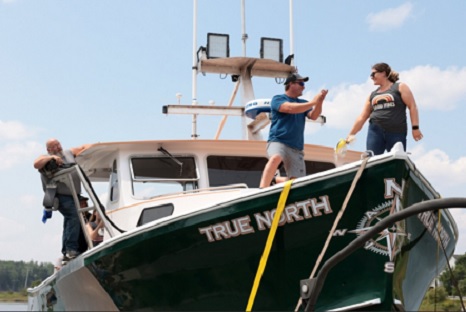
Patrice McCarron: Maine lobstermen are committed to protecting our ocean
In-depth, investigative reporting is increasingly rare these days. The resulting series, “The Lobster Trap” missed the boat, however, in its quest to invent a drama that places Maine’s lobster industry on the front line in the “battle over climate change.” From the lobster industry’s perspective, the series doesn’t accurately tell their story. Its seven key takeaways are disconnected from the people who were just a means to an end. This reporting dismisses, dehumanizes and minimizes fishermen’s role in mitigation and adaptation strategies, and it perpetuates a narrative that they are unwilling to engage in climate change conversations. >click to read< 09:21
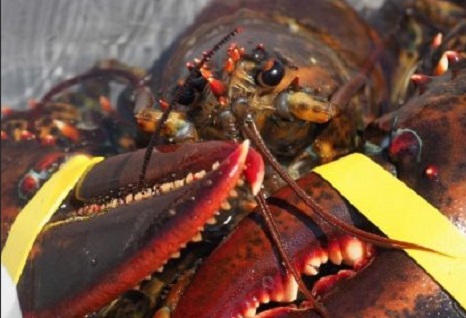
Maine’s lobster industry is in a fight for its survival
In October, a U.S. District Court judge in Bangor had ruled that there was reason to question the federal government’s decision to close this prime lobstering area for four months this winter. When an appeals court overturned this decision in November, lobstermen who had already set traps in this area were forced to dangerously hurry and take them up, creating economic hardship for those who invested in gear, rigged up and were already fishing in these productive waters. For Maine’s lobster industry, this is another frustrating example of one step forward, two steps back. This latest court ruling, however, is just the tip of the iceberg that threatens to sink the fishery. >click to read< 09:57
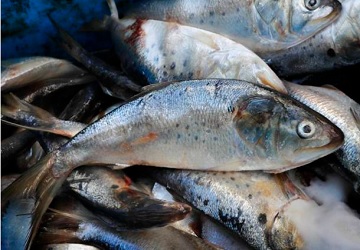
Surge in baitfish catch is a boon to Maine’s lobstermen
Maine’s lobster fishermen typically bait their traps with dead herring, but a scientific assessment in 2020 found that herring are overfished, and quotas for the fish were reduced dramatically. The loss of herring has increased the price of bait and made it harder for many fishermen to trap lobsters. However, losing herring has been offset somewhat by swelling catches of menhaden. Maine’s catch of menhaden, also called pogies or bunker, grew from about 6 million pounds in 2016 to more than 24 million pounds last year. >click to read< 11:28

Can American lobstermen survive new restrictions, ESA listing of the North Atlantic Right Whale?
For centuries, North Atlantic right whales were aggressively hunted for their meat and their oil, which was used to keep lamps lit and to make soap.,, Since 2017, the National Oceanic and Atmospheric Association (NOAA) has documented 34 dead whales (21 in Canada; 13 in the U.S.), and 16 whales with serious injuries from entanglements or vessel strikes. In an attempt to conserve and rebuild the population, NOAA announced new regulations in August 2021 on the Maine lobster and Jonah crab industries, including the closure of large parts of the Gulf of Maine to lobstering between October and January and requiring more traps per trawl to reduce the overall number of lines in the water. >click to read< By A.N. Smith 13:15

Lobster Fishing Association Files Lawsuit Against NOAA Whale Plan
A lobster fishing group based in Maine filed a lawsuit against the federal government on Monday charging new rules designed to protect whales are not based on the best available science. National Oceanic and Atmospheric Administration announced the rules, designed to protect North Atlantic right whales, in August.,, The Maine Lobstermen’s Association has pushed back against the rules,,, >click to read< 11:27

Rep. Sherm Hutchins – Maine’s lobster industry is under siege
Maine’s lobstermen and women are under attack by the Biden Administration after a recent set of rule changes restricting seasonal lobster fishing in 950 square miles of federal waters off Maine’s coast. This is an inflexible and poorly considered attempt to protect the North Atlantic right whale population. The series of rule changes are the most heavy-handed in a long line of attempts to undermine the lobster industry here in Maine. If our fisheries are not protected, and if these rules are not reversed, Maine’s fishermen and women will not recover. >click to read< 09:47
More siege from the non-productive slugs of the enviroscam movement – Zack Klyver, science director with the group Blue Planet Strategies, has a different view on the issue. I’m sympathetic to them and know that they work extremely hard,,, >click to read< 11:25

Lobster industry is anxious over upcoming North Atlantic right whale protection rules
The federal government is working on new rules designed to reduce risk to North Atlantic right whales,,, One of the threats the whales face is entanglement in ropes that connect to lobster and crab traps in the ocean. Early indications show that the changes required by the rules could be significant. They’re also vulnerable to ship strikes, and face the looming threat of warming oceans. Acting NOAA Fisheries Assistant Administrator Paul Doremus said in June that the U.S. and Canada, which also harvests lobsters, must “take and sustain additional efforts to reduce right whale mortalities and serious injuries.” >click to read< 10:39
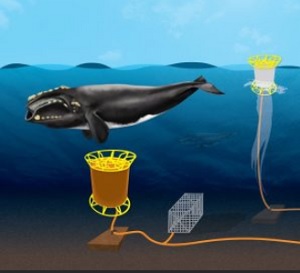
Fed Right whale plan could mean lobster industry changes – a reinvention of the fishery as we know it
Federal officials recently released plans,,, But it’s the risk reduction target, an aggressive 98 percent, that Maine Department of Marine Resources officials said means only one thing, “a complete reinvention of the fishery as we know it.” The conservation framework, an addition to the 582-page biological opinion, creates a four-phased approach to all but eliminate the death and serious injury of the whales in federally managed fishing grounds. The first phase calls for a 60 percent reduction in right whale deaths and serious injuries this year. Patrice McCarron, Maine Lobstermen’s Association, fears the industry can’t sustain that level of change. “If you look at the changes we’ve made over the last 25 years, there’s not a lot left to give,”, >click to read< 10:27

Biological Opinion to Protect Right Whales Met With Opposition on All Sides
The National Marine Fisheries Service (NMFS) released a key report called a Biological Opinion yesterday that calls for a 98 percent reduction in risk to North Atlantic right whales over the next 10 years. The goal is meant to be achieved over the course of four phases that correspond with increasingly tight restrictions on lobster and crab fisheries as well as other fixed-gear fisheries that use vertical buoy ropes. Vertical ropes attached to trap/pot gear is known to lethally entangle the whales. >click to read< 16:38

Well, hush my puppies! Georgia Con groups boycott New England Lobster Industry
Maine’s lobster industry is keeping a wary eye on a consumer boycott launched in the state of Georgia. Conservation groups there charge that New England’s lobster gear and trap-rope risk entangling and killing endangered right whales, and they say seafood lovers should choose other options. Alice Keyes, the coastal conservation director for an organization called 100 Miles, so-named for Georgia’s hundred-mile shoreline. The campaign is called “Eat Local, Not Lobster”. “I hope consumers are smarter than falling for these false campaigns,” says Patrice McCarron, the Maine Lobstermen’s Association executive director. >click to read< 09:25
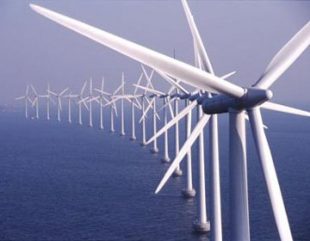
Offshore wind project raises questions for lobstermen
A Gulf of Maine offshore wind power initiative Maine Governor Janet Mills rolled out late last year has raised concern in the lobster fishing community,,, Mills has said the Governor’s Energy Office should “work closely with Maine’s commercial fishing industry,,, The Maine Lobstermen’s Association agrees collaboration is necessary. Maine is also taking part in a federally led task force on offshore wind with New Hampshire and Massachusetts. Named the Gulf of Maine Intergovernmental Regional, >click to read< 19:45
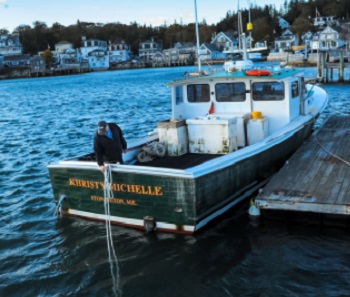
Despite an uncertain start to the fishery’s season, Maine lobster rolls on as the industry pivoted to new markets
Stonington lobster fisherman John Williams usually hauls his boat out in February for annual maintenance and paint in preparation for the start of the spring fishing season. “Then COVID started,” The health emergency was worsening and the economy shutting down. That included one of the lobster industry’s biggest markets — restaurants. The large cruise ship and casino markets also slammed shut. International freight and shipping to China, emerging as a large consumer of lobster, had nearly stopped. “I got thinking about it and said, ‘This doesn’t look very good. We won’t have any market,’” Williams says. >click to read< 10:31
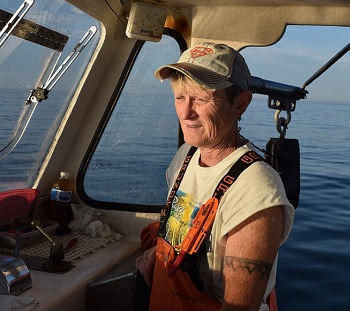
For New England lobstermen, resilience in ‘a season of uncertainty’
This is a tough season so far for Ms. Rosen, but over her 15 years of lobstering off Vinalhaven, Maine, she’s always been a better fall fisherman, she says. This season is like no other – the lobsters are slow to appear, but more than that, the coronavirus has caused trade to plummet and tourists to stay home. Rosen is selling her lobster for $3.35 per pound – a dollar less than last year – and she’s torn between wanting to catch more and worrying about flooding the market by catching too much. To supplement, she picked up a job with UPS in the afternoons after fishing. Ms. Rosen often fishes for her own bait rather than buying it.,, On Cape Cod, Glen Sveningson has been getting about $5.30 a pound wholesale, but it’s starting to fall. “Last year was one of the best years I’ve seen,” he says. >click to read< 13:17

Northern Right Whales Are on the Brink, and Trump Could Be Their Last Hope
The task of responding will fall to an unlikely champion, President Trump, whose recent appeals for support from Maine lobstermen could clash with the task of saving the right whale. Peter Corkeron, a senior scientist at the New England Aquarium who spent nearly a decade chronicling the gruesome deaths of right whales as the director of the National Oceanic and Atmospheric Association’s research program for large whales, said he feared the listing would have little impact. “Lobstermen certainly recognize the dire circumstance that the right whale species is in right now,” Patrice McCarron, “We’re in this awkward situation where right whales are not doing great, and it’s certainly not the fault of the commercial fisheries.”PEER also filed a complaint last year with the inspector general of the Commerce Department, which oversees NOAA, arguing that federal officials intent on reopening fishing areas have been ignoring their own scientists on climate change as well as other threats to whales. >click to read< 11:37

Judge James Boasberg’s court ruling puts future of Maine lobster industry at risk
United States District Judge James Boasberg’s order found that the National Marine and Fishery Services violated the Endangered Species Act by licensing the lobster fishery. In the second phase of the case, the judge will decide what action is necessary to rectify the situation. The Maine Lobstermen’s Association, an intervenor, and other industry stakeholders around the Gulf of Maine, will submit information for the judge to consider in his ruling.,, Activist Richard Strahan filed a motion in federal court in Bangor to stop fishing in Maine May 15, citing violations of the Endangered Species Act, Maine Public reported. The Maine Department of Marine Resources has no intention of curtailing lobster permits, said spokesperson Jeff Nichols. >click to read< 09:45
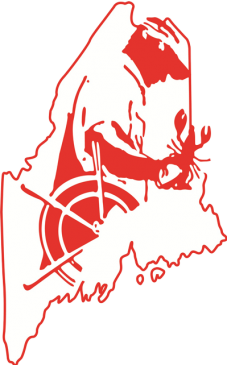
Court ruling threatens Maine’s lobster industry, MLA seeks donations to support its intervention in the case
Thousands of Maine’s family-owned lobstering businesses are at risk of extinction because of a recent federal court ruling citing a violation of the Endangered Species Act by the National Marine Fisheries Service. “The world’s most sustainable fishery could be shut down. And that is something that the Maine Lobstermen’s Association cannot let happen,” the association said in a press release today. “The MLA has launched a campaign to raise $500,000 to save Maine’s lobster industry,” Executive Director Patrice McCarron said in the release. The MLA is an intervenor in the court case and is the only organization in Maine that has been granted standing to participate in the case. >click to read< 15:20
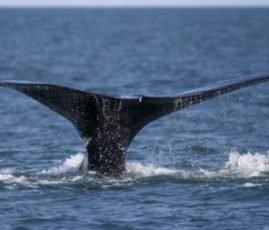
North Atlantic Right whale trouble: Lawsuit on protections could last for months
Environmental groups sued the U.S. government with a claim that regulators’ failure to protect the North Atlantic right whale from harm was a violation of the Endangered Species Act, and U.S. District Judge James Boasberg ruled April 9 that they were right. The government, environmentalists and industry members who are involved in the lawsuit must still return to court to determine a remedy. Boasberg ruled that the risk posed to the whales by the lobster fishery was too great to be sustainable, and that a remedy could ultimately result in new restrictions on lobster fishing. Members of the industry, including the Maine Lobstermen’s Association, have vowed to fight to protect the fishery. >click to read< 11:27
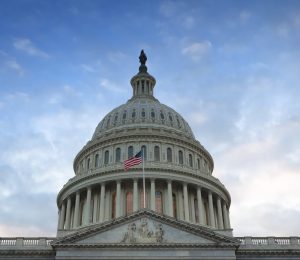
Coronavirus: Maine Fishermen still waiting to access pandemic relief funds
On March 27, Congress passed the Coronavirus Aid, Relief, and Economic Security (CARES) Act that, among other provisions, authorized one-time “economic impact payments” of $1,200 to adult U.S. residents with incomes of under $99,000 plus an additional payment of $500 for each child in a household. The CARES Act also established the Paycheck Protection Program to provide $349 billion in loans to businesses affected by the coronavirus shutdowns. Fishermen were eligible to apply for those loans as well as loans under the Economic Injury Disaster Loan program, but many did not realize that was the case. “Due to unclear guidance, many fishermen were initially told by their lenders they were not eligible for the Paycheck Protection Program,” lobster fisherman and state Rep. Genevieve McDonald (D-Stonington) said Monday. >click to read< 07:49
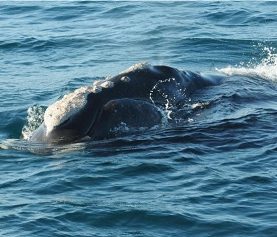
Ruling in whale case signals turmoil for lobster industry
It is too early to know exactly how the ruling in a lawsuit brought by a group of environmental organizations will affect the lobster industry. U.S. District Court Judge James Boasberg asked those groups and NOAA to file briefs suggesting an appropriate “injunctive remedy” against further violations of the Endangered Species Act. Whatever that remedy may be, it is likely to come soon and have a significant impact on Maine lobstermen. During the past several months, Department of Marine Resources Commissioner Patrick Keliher hosted a series of meetings along the coast with members of the lobster industry,, Throughout the process, Keliher warned that the pending federal lawsuit against NOAA was a “wild card” that could affect the regulatory process in undetermined ways. Last week, Keliher said that with the release of the court’s decision the wild card had been played. >click to read< 17:51
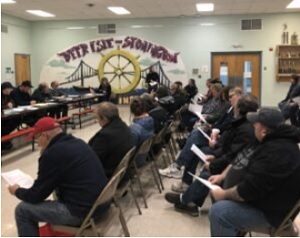
Lobstermen throw cold water on Maine state plan to protect whales
Fishermen in the heart of Maine’s $485 million lobster industry don’t like a state proposal to protect endangered right whales from buoy lines, arguing that it forces them to give up too much to fix a problem they aren’t causing.About 75 people packed a local lobster board meeting in Deer Isle on Thursday night to vent about the plan, which they argue is overly complicated, puts them in danger and is unlikely to help the species it is trying to save. >click to read< 09:40

Lobstermen’s Association rejects DMR whale proposal
Efforts to find consensus over how to protect endangered North Atlantic right whales from entanglement in fishing gear without decimating the Maine lobster industry took a blow last week. The Maine Lobstermen’s Association (MLA) announced that it would not support a plan developed by the Department of Marine Resources “because it seeks reductions that exceed the documented risk posed by the Maine lobster fishery” and “creates unresolved safety and operational challenges for some sectors of the lobster industry,”,,, >click to read< 10:43
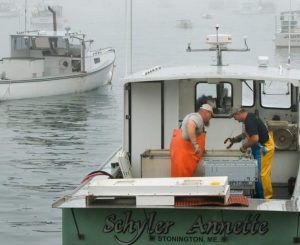
Second Maine lobstering group rejects state’s plan for protecting whales
The Maine Lobstermen’s Association staked out its position on the Maine Department of Marine Resources’ proposal with a board vote Thursday night. Director Patrice McCarron would not disclose the vote breakdown, calling that a private matter. The group did, however, release a statement about why it couldn’t support the plan. “It seeks reductions that exceed the documented risk posed by the Maine lobster fishery,” >click to read< 06:16
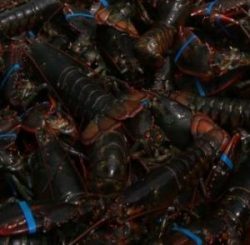
Meetings this week – Lobster industry braces for right whale changes amid turbulent times
“Right now, we’re all fishing hard, so it’s taking our mind off it some, but it feels like we’ve been waiting and worrying about what whales might do to us for so long now,” said Jake Thompson, a Vinalhaven lobsterman. “We can manage the rest of it, but whales? Everybody’s worried about whales.” Lobstermen will have a chance to weigh in on Maine’s plan to protect the endangered right whale from buoy line entanglements at Maine Department of Marine Resources meetings in Ellsworth, Waldoboro and South Portland this week. >click to read< 06:51
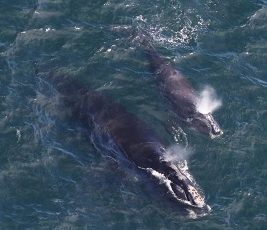
Maine’s lobstermen willing to work with feds to protect whales
The Maine Lobstermen’s Association is one of the key stakeholders in an effort to better protect the North Atlantic right whales,,, A federal plan that’s being developed to help save the whales would remove miles of lobster trap rope from the waters off Maine.,, regulators have also recently expressed desire to work with the lobstermen, who have said the whale protection plan placed too much onus on their business, which is an industry vital to Maine’s economy. Chris Oliver, NOAA’s assistant administrator for fisheries, said this month that federal managers are also “diligently working with our Canadian counterparts to address both ship strikes and entanglements in Canadian waters.” >click to read< 14:18

NOAA answers lobstermen’s critique of whale rules science
NOAA Fisheries released a more detailed response Wednesday to criticisms of the science it used to develop new protections for North Atlantic right whales,,, The response was attached to a letter from NOAA assistant administrator Chris Oliver to Patrice McCarron, executive director of the Maine Lobstermen’s Association. (The letter is attached at the article) >click to read< 14:50

IFAW Officials Disappointed with Lobsterman Association’s Position on Whale Issue
The Yarmouth Port-based International Fund for Animal Welfare is expressing disappointment for the Maine Lobstermen’s Association decision to withdraw its support for the Take Reduction Team Agreement concerning right whales. The association withdrew support last week due to what it calls “serious flaws in the data” presented during the agreement process.,, The MLA review of the data also found that current whale protection measures have been effective. Changes to the right whale plan in 2009 and 2014 resulted in a strong downward trend in the incidence of entanglement cases involving U.S. lobster gear, from seven cases prior to 2010 to only one case since then. >click to read< 12:40






